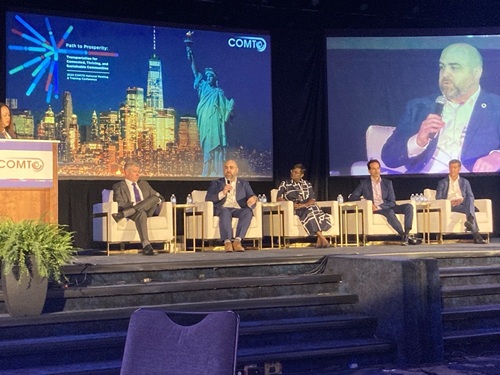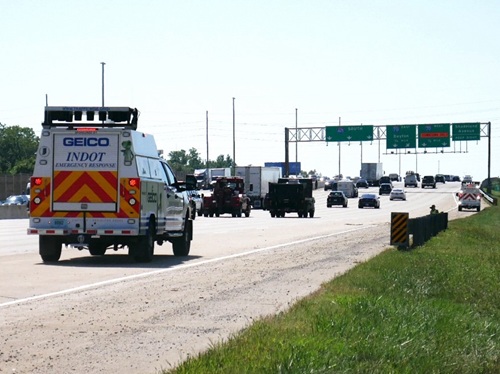On March 27, U.S. District Court Judge James Wesley Hendrix ruled in a case brought by the State of Texas that the Federal Highway Administration “is not authorized” to regulate greenhouse gas or GHG emissions as the agency sought to do via a rulemaking issued in December 2023.
[Above image via Wikipedia]
That ruling stems from a case filed in the U.S. District Court for the Northern District of Texas in December 2023 by the Texas Attorney General on behalf of the state and the Texas Department of Transportation.
“The Final Rule requires state departments of transportation and metropolitan planning organizations to establish declining carbon dioxide (CO2) targets for the GHG Measure and report CO2 reductions as a ‘performance measure,’” noted the original lawsuit.

“The USDOT [U.S. Department of Transportation] itself repealed a similar prior rule for three defects that remain in this Final Rule: 1) a lack of statutory authority for the GHG Measure; 2) the regulatory burden it imposes; and 3) its duplication of actions by other, more appropriate agencies,” the Texas Attorney General argued.
“The Final Rule exceeds the statutory authority granted to USDOT by Congress; is arbitrary and capricious, an abuse of discretion, or otherwise not in accordance with law; and is contrary to constitutional right, power, privilege, or immunity,” the lawsuit said.
Judge Hendrix concurred with that view in his ruling to vacate the FHWA’s GHG regulation, which went into effect in January.
“Congress expressly limited the permissible performance measures to only those specifically enumerated in the statute,” he wrote in his decision.
The statute is about maintaining the federal highway system, not reducing the environmental impact of vehicles using it, Hendrix said.
“If the people, through Congress, believe that the states should spend the time and money necessary to measure and report GHG emissions and set declining emission targets, they may do so by amending Section 150 or passing a new law,” noted Hendrix, referring to the provision of the federal code at issue.
“But an agency cannot make this decision for the people,” he added. “An agency can only do what the people authorize it to do, and the plain language of Section 150(c)(3) and its related statutory provisions demonstrate the [US]DOT was not authorized to enact the 2023 Rule.”
The American Association of State Highway and Transportation Officials expressed similar concerns regarding the statutory authority of FHWA to pursue its GHG rulemaking in comments filed with agency in October 2022.
 Nation
Nation


